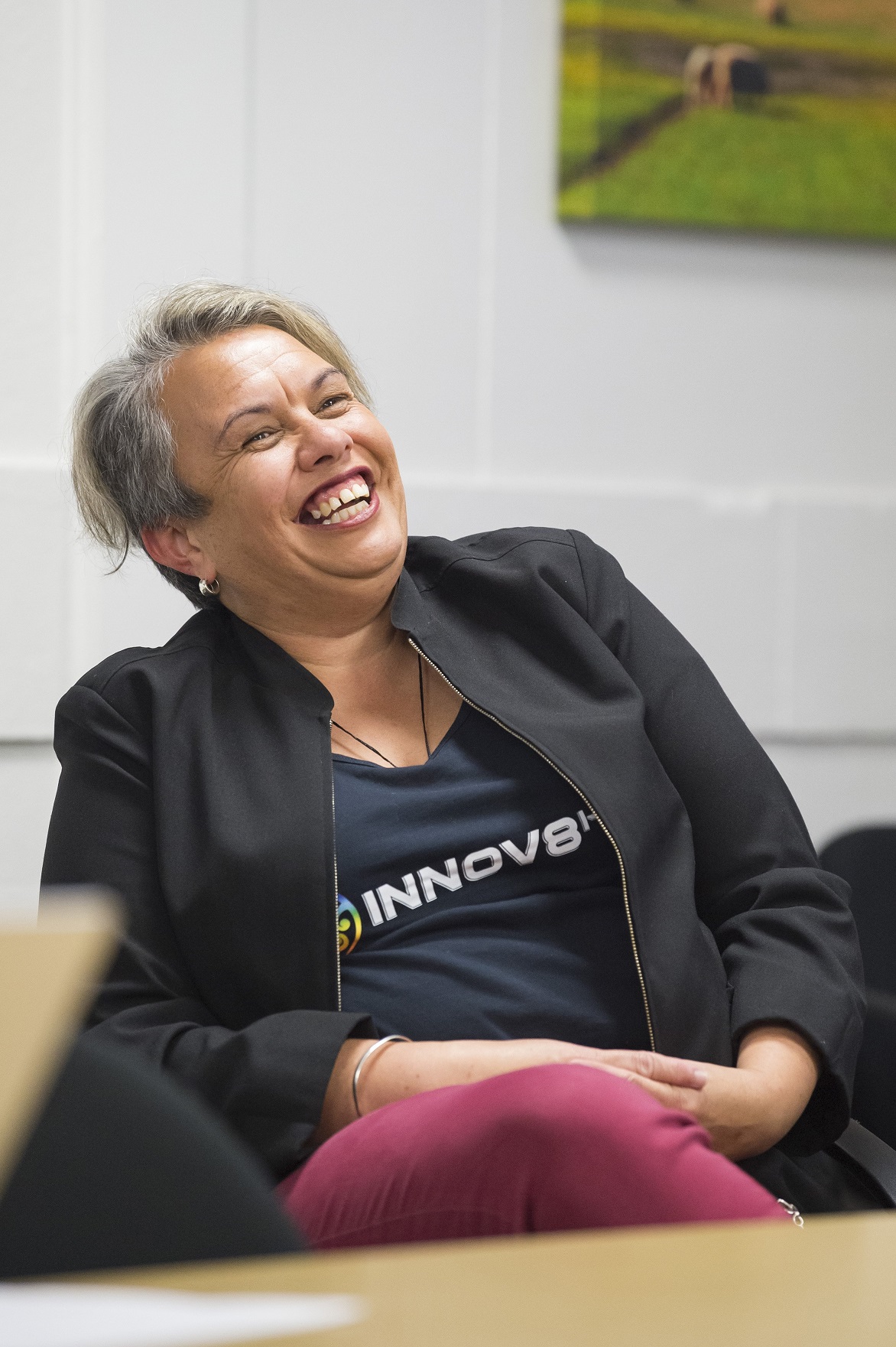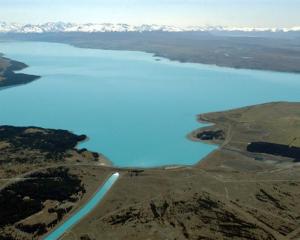
When Heidi Renata returned to her old school in Milton to deliver an address to pupils, a former teacher told her they never thought she would "be anything".
It was a memorable line but, as the endearing wahinepreneur says, while knocks could be paralysing in some cases, critics could champion your motivation.
"I fight harder when I’m told I can’t do something. Surround yourself with the right tribe, the right people and magic can happen," she said.
And the magic has happened for Ms Renata (47), who has been an influential leader in Dunedin since returning to her Otago roots after travelling the world.
She created INNOV8HQ, the world’s first indigenous modelled co-working space which she described as a "business marae" to connect, resource and support.
She was then instrumental in the development of the Mana Rangatahi programme to help support youth entrepreneurship through matauranga Maori principles.
Aimed at people aged between 16 and 24, it was set up to inspire change in the business world. From there, she launched a mobile phone app to broaden its reach.
She wrote the app’s content and her brother Steven Renata’s Auckland-based media production business Kiwa Digital developed it.
Ms Renata attended The Grand Business South Awards in November, where she was a finalist in excellence in leadership and INNOV8HQ was a finalist in the Maori business category, and she was supported by her brother and mother.
For Ms Renata , they were her own influential leaders — "my whanau are my inspiration" — and leadership started at home. That was why she wanted the pair with her.
That influence was usually unsung but whanau had been critical for her — "it’s been my driving force and remains that", she said.
Now, working with young people, they also became part of her whakapapa. Not having any children of her own, she described it as her maternal response, saying she had "all this pent-up aroha".
That was coupled with life lessons — "the good, the bad and the ugly" — experiences that she could share with them and provide them with opportunities that she was given.
"We were always empowered to just keep going, even when the going gets tough," she said.
Ms Renata grew up in Milton and was from Ngapuhi descent. Her father — who was fluent in te reo — was a direct descendent of Hone Heke, while her mother’s family settled in Otago in the early days of the region’s formation.
It was a "beautiful blend" of Maori and Scottish-Irish ancestry and she grew up knowing where she came from.
"Dad always said, ‘you need to know your whakapapa’ . . . Mum was very much the same," she said.
She was proud to have such a rich heritage, getting the best from the cultures on both sides of her family, and she felt enriched to be part of both.
"I represent that today to the best of my ability."
Ms Renata left South Otago in her late teens and moved to Auckland where she worked for a finance company which did not resonate with her personality.
A "Hollywood moment" occurred when she drove past BellSouth and decided she was going to work there one day. Within six months, she achieved her ambition.
She worked her way up the ladder, spending 13 years with Vodafone which bought BellSouth’s New Zealand operations in 1998.
She had the dream of creating Innov8HQ in 2015, when she had just turned 40. It was a five-year dream that she and Steven — one of the founders of Les Mills International — realised in only 12 months.
Ms Renata, who described herself as a "hard-core proud Dunedin chick", had always loved Dunedin and it was the logical place to return to after travelling the world.
Ms Renata believed Dunedin was "moving in the right direction".
"Everywhere I can see innovation happening and we’re challenging our thinking."

It was beautiful to see the renaissance of the old with the new and she wanted to see the city continue to move forward while also celebrating its "beautiful heritage".
Innov8HQ was motivated by the GigCity campaign; the intention was to connect, resource and educate and also to create a sense of belonging, evolving that into a global mindset.
Launching the Mana Rangatahi app was a project Ms Renata had been thinking about since the first lockdown in 2020 and to see it launched earlier this year was "very exciting".
"I never saw myself writing an app two years ago. It’s crazy talking about it. You get on a bandwagon and doing what you love, anything’s possible," she said.
Te Reo was a very spiritual language for Ms Renata, who described herself as a very excited student of the language.
The richness it brought to conversations and the depth of the language was "wonderful", and she was delighted to hear its increasing use.
"It’s not often you don’t hear anyone saying Kia Ora and getting right into it."
While Ms Renata said she was doing what she loved, she did acknowledge it came with sacrifice. Going into business could be a "bit of a romantic gesture" The reality was long hours — "you do carry the weight of stuff you probably didn’t anticipate" —but she would not change a thing, particularly over the past two years.
She loved the dynamic of what had been created and working with young people, and graduates becoming "part of this beautiful alumni".
"It keeps us young in thinking as well."
Everything was co-designed with the young people — "we put them in the driving seat, they love it. They get to see the real world in action. I love it because we’re keeping ... [things] real."
Historically, people were taught to be brave, but she believed vulnerability needed to be demonstrated.
For resilience came from "the goods, bads and uglies" and through some of the biggest challenges, and that ability to respond to a challenge.
Through Mana Rangatahi, young people were being taught to be solutions-focused.
Asked about her leadership style, the effervescent Ms Renata laughs. It could be "pretty colourful in the sense you never know what you’re in for day-to-day".
"I like to take everyone on a journey with me. I need you in the waka," she said.
She wanted to retire at some point, although that was not necessarily the right word — she still wanted to do something of service.
But she talked about that more in the sense of her motivation to bring forward "the next Heidis"’ and she was always looking for the next leaders.
No given day was the same and she was always looking ahead — "I’m not so interested in detail" — she had an end result in mind and everyone contributed to getting there.
Saying she was "definitely not" a micro-manager, Ms Renata said she was not going to predetermine what people were capable of "because there’s nothing empowering in that".
Ms Renata was part of an NZQA national Maori panel and she did a lot of public speaking, including community keynote addresses, something that she loved.
If she was nominated for any awards, it was "for our people — that’s how I look at it".
"I’m not chasing a certificate or anything like that. I’m chasing influence."
Outside of work, she loved walking, going out and dancing, having time with friends and whanau and, when possible, travelling.
"I feel like this [indicates her head] never switches off."












